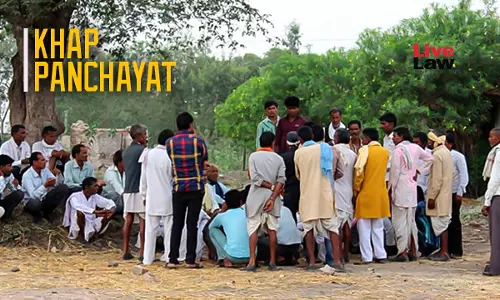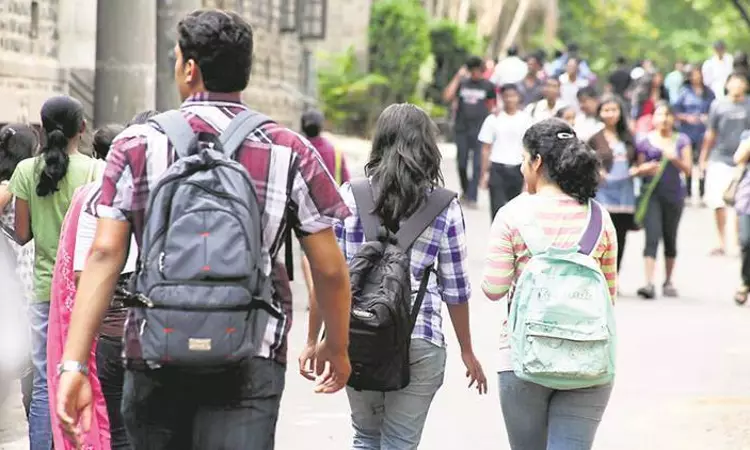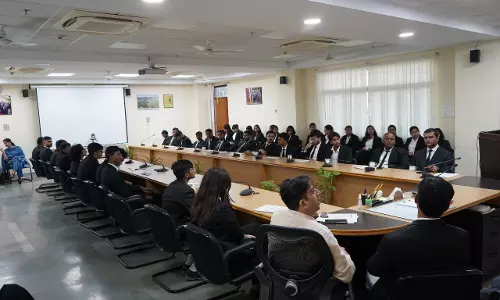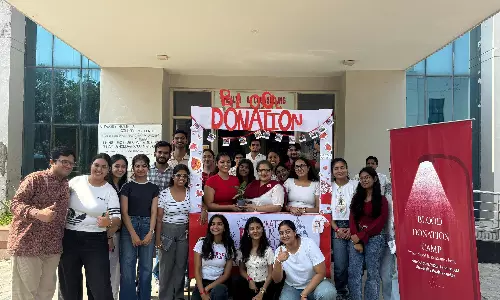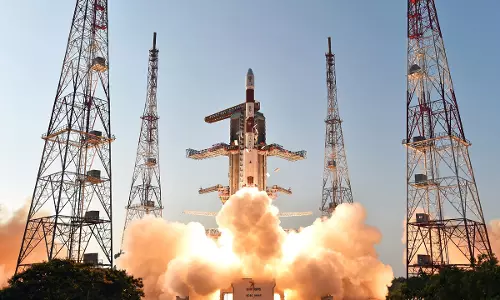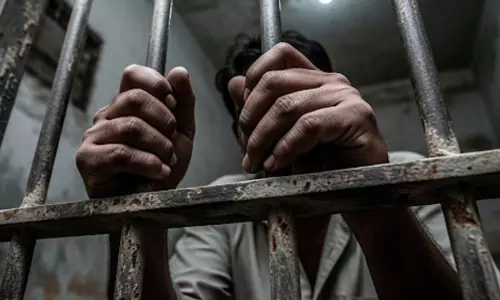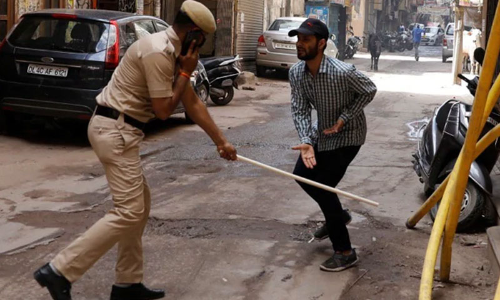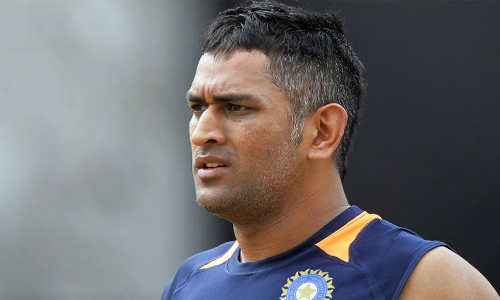Law School Articles
Vows Of Silence
For a country that reveres marriage as a sacred bond, India's silence on marital rape remains one of its most unsettling contradictions. In the eyes of the law, a husband's right to his wife's body still overshadows her right to autonomy. Section 63 of the Bhartiya Nyaya Sanhita, which defines rape, explicitly exempts intercourse by a man with his wife (if she is above 18) from the crime of rape.The message sent? Consent, when placed within marriage, becomes irrelevant.The persistence of this...
Dark Patterns And Deep Manipulation: Regulating Psychological Exploitation In Indian Digital Markets
The deceptive or manipulative user-interface designs that trick or coerce users into the actions that are against their best interest are “Dark Patterns.” These create exploiting cognitive biases such as scarcity, fear of missing out or guilt laden language, this negatively affects user autonomy and leads people into unnecessary data sharing. The psychological exploitation which is done by false urgency not only breaches the ethical norms of consent but constitutes unfair trade practice. In this...
Love On Trial: The Extra-Constitutional Power Of Khap Panchayats
Across the rural heartlands of India, Justice is not always administered in courtrooms decorated with law books and lined with judges' benches. Sometimes, it is delivered under a modest roof by elderly males of the village, who invoke tradition and honour rather than statutes and precedents. This is one of the various non-conventional adjudication systems across the world, primarily known as the Khap Panchayat. Khap Panchayat is an informal judicial assembly that seeks to preserve morality and...
Supreme Court's National Task Force And Constitutionalisation Of Student Mental Health
On this World Mental Health Day, while global efforts rightly focus on 'Mental Health in Humanitarian Emergencies,' the Indian context presents a profound and urgent domestic crisis- Why students are committing suicides, the escalating epidemic of student suicides. This day, dedicated to raising global awareness and mobilising action for mental health, casts a sharp light on the colossal gap. The historic judicial intervention, enunciated a month ago in the Supreme Court's verdict in Sukdeb Saha...
Pacts Before Promises: Unsettled Legality Of Prenuptial Agreements In India
Indian religion, culture and society have revered matrimony. It often bonds families and communities. Against this context, the concept of a prenuptial agreement, a compact entered into prior to marriage that defines property rights, financial duties, and prospective arrangements in case of separation or divorce appears to many as odd, if even subversive. A concept evolved from the west, prenuptial agreements are designed to protect the individual rights and assets of each spouse and specify...
RPNLU Prayagraj Concludes Para Legal Volunteers' Basic Training Programme
Dr. Rajendra Prasad National Law University, Prayagraj (RPNLU), in collaboration with the Uttar Pradesh State Legal Services Authority (UPSLSA) and the District Legal Services Authority (DLSA), successfully concluded a three-day Para Legal Volunteers' (PLVs) Basic Training Programme for the B.A. LL.B. (Hons.) students of the 2025 batch. Held from October 6th to 8th, 2025, the initiative aimed to impart foundational knowledge of India's legal aid framework and cultivate a cohort of socially...
RGNUL Punjab Organises Blood Donation Camp In Collaboration With Govt. Medical College, Patiala
The Legal Aid Clinic at Rajiv Gandhi National University of Law (RGNUL), Punjab, organized a Blood Donation Camp on October 4, 2025. The event was held in collaboration with the Government Medical College, Patiala.Key university officials, including Vice-Chancellor Dr. Jaishankar Singh, Registrar Prof. Ivneet Kaur Walia, and Legal Aid Clinic Faculty Coordinator Dr. Abhinandan Bassi, were present at the initiative. A team from the Government Medical College, which included Dr. Loveleen, Dr....
From Policy To Protection: Third-Party Liability And Insurance In Indian Space Exploration
There are around 300 space-tech startups in India as of 2025, making the space sector account for an estimate of $8.4 billion. According to the World Economic Forum, with this current pace of the Indian space industry, the sector is expected to hit a size of $47.3 billion by 2032, making itself a significant contributor in the global market.Following this, in May, 2024, Tata AIG introduced India's first insurance scheme tailored specifically for the rising space industry. The company unveiled...
Mandatory Minimum Sentencing: Justice Or Injustice
While times change, the issue of Mandatory minimum sentencing in law which sounds simple but is actually multifaceted when you start thinking about it. Which in simpler terms means that the law says you have to give at least a certain minimum punishment for a particular crime, irrespective of mitigating circumstances. This idea started mainly to make sure that people who do serious crimes get punished properly. However, many people argue that it can sometimes lead to injustice because every case...
Auden, Indian Police And Law
In “Law Like Love1”Everyone but the police is missing. Auden was not ignorant.The police were always hissing.'Law' is a word they barely know.If untrue in general, it's true for Indian police. Lathi, encounter and water cannon; their love. The Constitution is not their cup of tea.Bulldozer paves; power wears justice.No matter how much the SC mends the dent. At stations, the margins always suffer.Love seldom cares for contempt.Imagining, if Auden dared, the Indian police- “Indianization… You...
Can Persona Triumph Prior Use In Trademark Law? Dissecting Captain Cool Conundrum
A nickname once applied to other cricketers is now the subject of a trademark application under Class 41 (sports training, providing sports training facilities, sports coaching services). An application seeking registration of “Captain Cool”[1] has been filed by M.S. Dhoni, a public-coined name affectionately associated with him due to his calm demeanour under pressure. Notably, the mark was already registered by Prabha Skill Sports Private. Ltd, raising questions about Dhoni's subsequent...
Music, Sampling, Remixes And Copyright: Is Indian Legal Framework Still Struck In CD Era?
The Chuttamalle vs. Manike Mage Hithe ControversyOn August 5, 2024, the single Chuttamalle debuted and streamed from the Indian motion picture Devara: Part 1. The music was created by Anirudh Ravichander and the lyrics were written by Ramajogayya Sastry. Within hours of its release, netizens were quick to compare Chuttamalle and the song that has gone viral in Sri Lanka and around the world, Manike Mage Hithe. Manike was originally written by Chamath Sangeeth in 2020, and a cover by performer...





